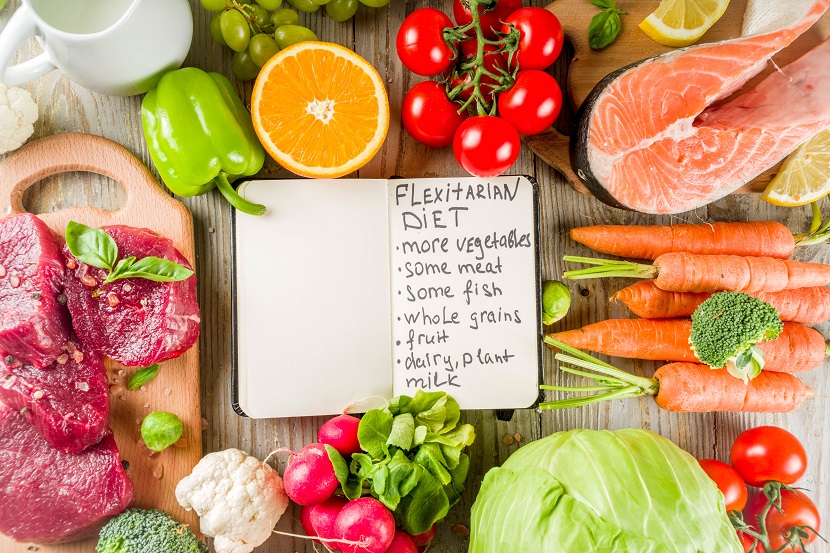
Vegetarian or vegan diet?
The beneficial effects of those two types of diet are a present matter of debate, both in the scientific community and in the non-specialised information channels like magazines, newspapers, and television programs.
In most cases, the main matter of debate is the comparison between the effects on health of this type of food choices with those of omnivorous diets, which include animal-origin foods, like meat and by-products (dairy and eggs).
In the Clinical Nutrition Journal, a study group published an interesting review which analyses all the metanalyses (publications that combine the results from studies examining similar matters to increase the numerosity of the sample) and the systematic reviews available in the scientific literature which studied the association between a vegetarian diet and its effects on health.
They took into consideration the effects of the different models of vegetarian diets (from the more “flexible” ones to the real vegan diet) only on specific risk factors or pathologies, without examining the effects on the environment of these food choices. The results show that the effect profile of the evaluated diets is varied.
On one hand, they confirmed some benefits associated with the adoption of a vegan/vegetarian diet, namely:
- Improvement of the lipidic and lipoprotein profile in comparison with omnivorous diets: blood lipids, both total cholesterol and LDL cholesterol (the so-called “bad cholesterol”);
- Better control of obesity, but not of inflammatory markers.
The results showed also that those who exclude animal-origin foods have a lower intake of iron, zinc, and B12 vitamin, with higher levels of the plasmatic homocysteine. Moreover, the reduction of blood lipids extends to HDL cholesterol, the so-called “good cholesterol”, to which we generally attribute a protective anti-atherosclerotic effect.
Undertaking a complex analysis, vegetarian diets are associated with a reduction of 11% of total negative effects on health, if compared to omnivorous ones.
Nevertheless, the surprising fact that emerges from this review is that this difference is due mainly to the contribution of the Seventh-day Adventists’ diet (a relatively recent Christian religious movement), which is correlated to a reduction of the same events of about 28%.
This diet follows the principles of the vegetarian diet – so it allows the consumption of milk and milk and egg by-products – and it is characterised by the strong promotion of an active lifestyle which also includes the abstention from smoking and drinking alcohol.
If we do not take into consideration this diet’s contribution, the remaining vegetarian diets have slightly better effects than omnivorous diets, with a risk reduction of negative effects on health of about 3%, which is not a substantial difference.
More specifically, excluding from the evaluation the study about the Seventh-day Adventists’ diet, the only parameters which would improve adopting other types of vegetarian diets would be associated with a lower risk of developing ischemic heart diseases or diabetic diseases.
The overall incidence of cancers would be lower, but not their mortality rate, and no significant correlation was identified with cerebrovascular diseases and with some high incidence cancers (colorectal, mammary, prostate, and lung cancers), or with death from any cause.
In addition, the effect of vegan diets on bone density seems unfavourable.
So, according to the results obtained from this review, it seems that too rigid vegetarian diets are associated just with modest improvement of the health status compared to the omnivorous ones.
The analysis of the studies dedicated to the Seventh-day Adventists’ diet highlighted that in this community the vegetarian diet was strictly associated with the elimination of other several non-food risk factors (smoke and alcohol): this surely affects the positive effects that this diet has on the health status.
Part of these differences, according to the authors, would be attributable to the differences in the intestinal microbiota (which are the about 500 species of bacteria inhabiting our digestive tract) brought by diets with high or low fibre content or with specific elements (like carnitine, choline, etc.).
These observations underline the limited utility of the differentiation between omnivorous and vegetarian diets, in identifying the dietary pattern with the best effects on health.
It seems rational to imagine that a diet based mainly on vegetal-origin foods integrated with a moderated quantity of animal-origin foods (the so-called flexitarian diet), associated with a healthy lifestyle, can represent the reference model to promote.
Bibliography:
Oussalah A, Levy J, Berthezène C, Alpers DH, Guéant JL; Health outcomes associated with vegetarian diets: An umbrella review of systematic reviews and meta-analyses; Clin Nutr.2020; S0261-5614(20)30101-1.